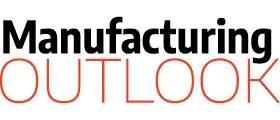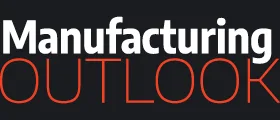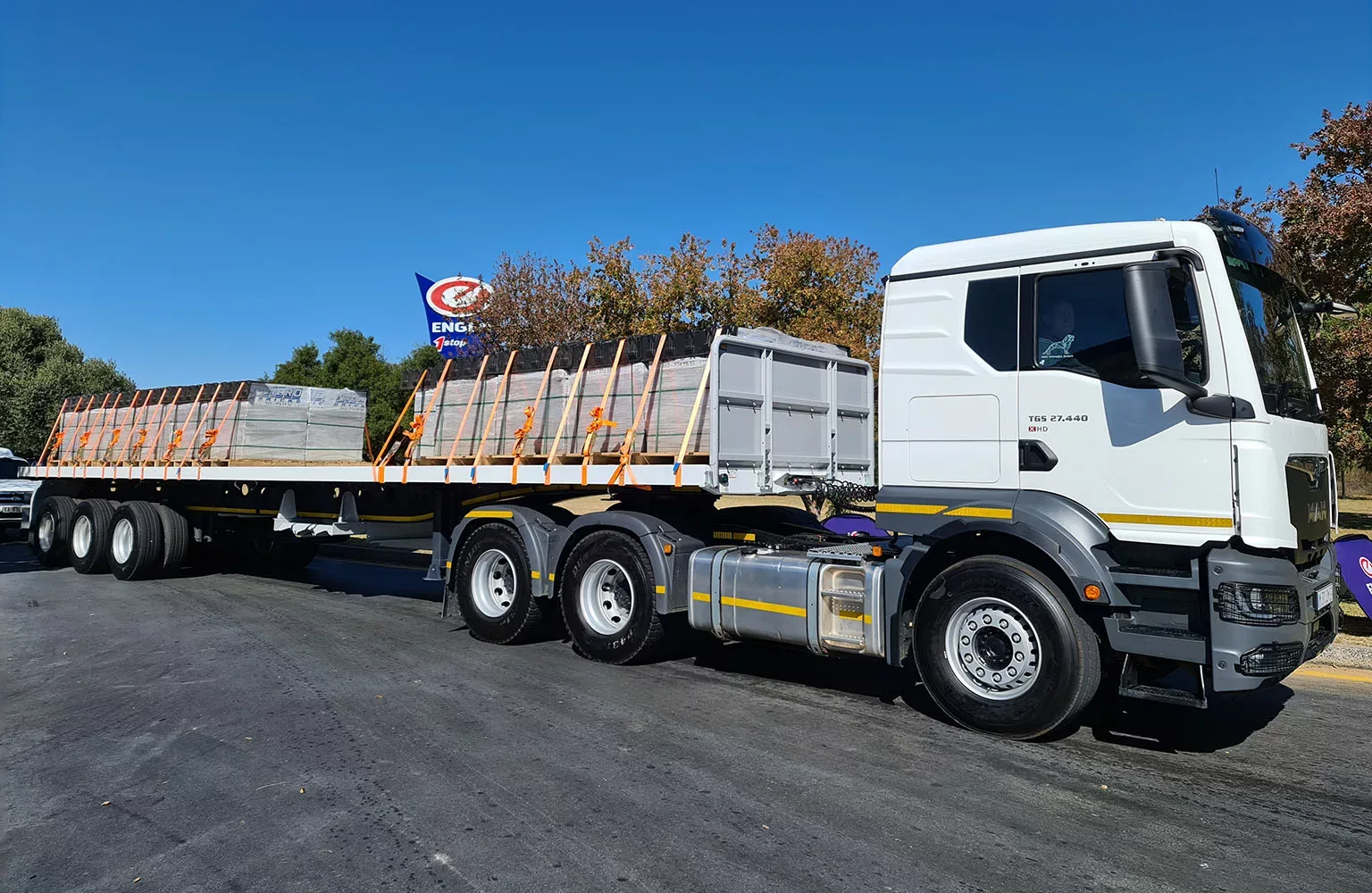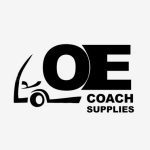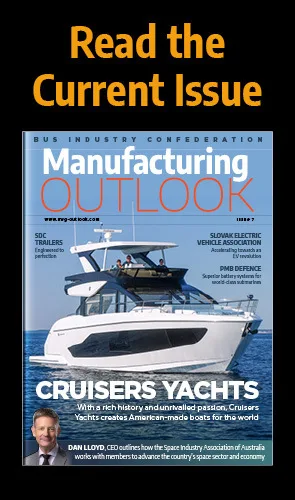With the aim of simplifying customer business through leading sustainable solutions, MAN Automotive South Africa proudly boasts 60 years’ worth of shaping the country’s transportation industry. Jan Aichinger, Managing Director, tells us more about the company’s newest innovations and plans for a long-lasting future.
DISCOVER THE FUTURE OF TRANSPORT
For a nation to find prosperity and growth, effective means of transporting people and goods are of critical importance.
The fruitfulness of a country’s transport infrastructure plays a significant role in its development, both socially and economically, with researchers suggesting that successful transport is second only to education as a stimulus for expansion.
In South Africa (SA), a country with a complex and varied history of economic power and global relevance, the role of adequate transport is particularly important, especially considering that the nearest port is approximately 600 kilometres (km) away from the industrial heartland.
With a wide variety of transportation methods across the nation, ranging from roads and railways to airports and waterways, the sector is overseen by the South African Department of Transport, whose vision consists of the ideology that transport is the heartbeat of SA’s socioeconomic growth.
In an effort to further progress and achieve long-term development goals, many cities across SA have made it an ongoing priority to develop their transportation sector.
Specifically, the national road network and freeways were massively expanded during the apartheid period between the 1940s and 1990s, now consisting of over 362,000km of highways and more than 73,500km of paved roads, making cities more and more accessible for both business and pleasure.
The significance of the manufacturing and transportation sectors was especially underscored during the COVID-19 pandemic, when many global industries came to a sputtering halt, impacting millions of homes and businesses that were unable to access their daily needs and requirements.
Here to lead the way in the ever-important transportation industry and drive SA’s economic future into one of longevity and global dominance is MAN Automotive South Africa (MAN Automotive), a leading manufacturer of medium, heavy, and extra heavy trucks, as well as commuter buses and luxury coaches.
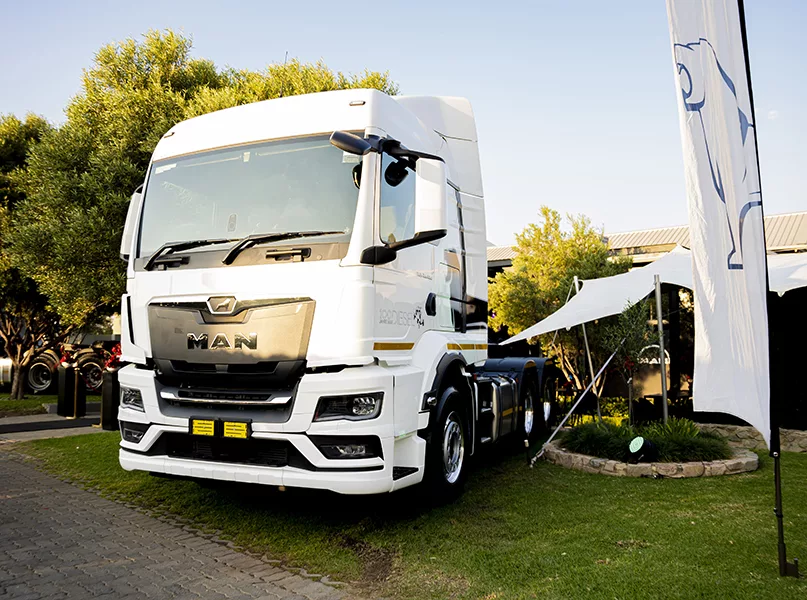
BECOMING ESTABLISHED IN THE INDUSTRY
Having just finished his secondary education and looking for an opportunity to jumpstart his professional career, Jan Aichinger, Managing Director of MAN Automotive, ventured into the transportation industry in 1988 with a bus manufacturing company based in Germany.
“There, I was offered the opportunity to participate in a dual study programme, where I was able to alternate between going to university for three months and working at the company for three months,” introduces Aichinger.
“Although I didn’t have the same freedom I would at normal university and the programme was rapid and stringent, this opportunity was especially appealing to me because I was given the ability to learn through both theory and real-life experiences.”
Once immersed in the exciting and ever-adapting industry, Aichinger knew that was where he wanted to stay. Having worked for companies like Mercedes-Benz in various roles, his next dream was to work abroad, and despite the popular trend being to go to the US, he was specifically interested in Asian countries.
“American culture shares a lot of the same origins and similarities as Germany, whereas in Asia, there are completely different ways of thinking and living, which I wanted to experience first-hand.”
The start of Aichinger’s international career began in Saudi Arabia, where he worked for three years as a sales manager before moving to other destinations across the globe, including SA, the UK, and Russia.
Since May 2023, he has been in SA – the second time he has worked in the country, with the first occasion being joyfully marked by the birth of his younger daughter.
“Whenever one of your kids is born in a country, you inevitably leave a piece of your heart with that place, which makes coming back to SA all the more amazing,” Aichinger enthuses.
This time around, he carries the title of Managing Director for MAN Automotive’s sales organisation and two plants, making it an even more exciting and intensive experience as a different part of the business has opened up for him.
“You can see from all the positions I’ve held and areas I’ve lived that I am not the type of person who takes a job and remains stagnant. I am always looking for the next challenge.”
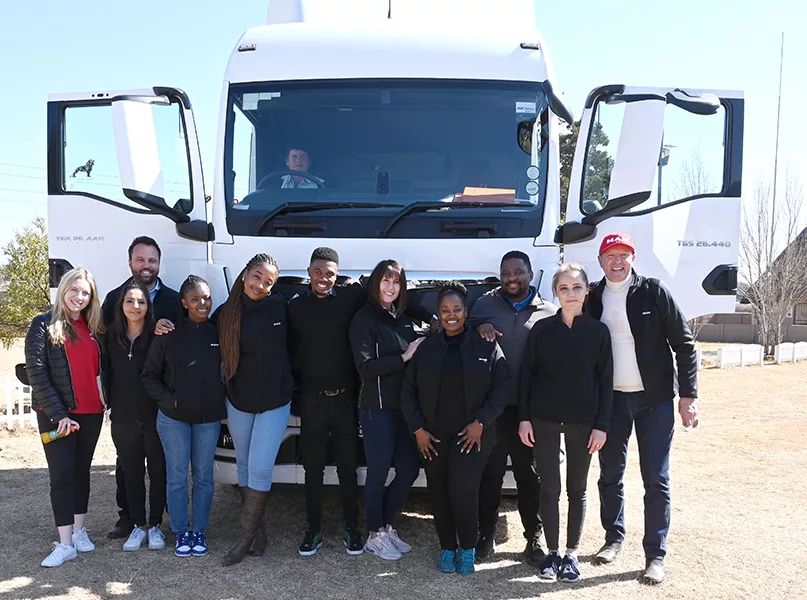
THE PROMINENCE OF ELECTRIC VEHICLES
Having accomplished his dream of living in other countries and experiencing different cultures, Aichinger can attest that the global transportation and manufacturing industry is consistently stimulating, providing new challenges and technologies that keep those involved on their toes.
Currently, there are many new innovations and changes in the sector, such as the phasing out of combustion engines, rapidly advancing automation and digitalisation, and the prevalence of electric vehicles (EVs).
MAN Automotive sees electric drive systems for commercial vehicles as the decisive factor on the road for local emission-free, climate-friendly mobility.
Despite the many economic advances and strides SA has recently made, it falls behind Europe in regards to the implementation of EVs and reliance on traditional combustion engines. This is primarily due to the ongoing period of widespread national electricity blackouts, more commonly referred to as load shedding.
These unpredictable power outages make it extremely challenging to develop reliable infrastructure for electric buses and trucks, which require much higher kilowatt (kW) levels to sustain than passenger vehicles.
However, MAN Automotive is facing these challenges head-on and actively developing ways in which to utilise SA’s strengths to situate this new technology in an unpredictable energy environment.
“Our motivation is high as solar panels in SA are 30 percent more efficient than in Europe due to our close proximity to the equator and the high amount of sunny days, allowing for our payback to be much quicker,” Aichinger details.
“We’ve also already produced the first electric bus and intend to deliver the first 10 in 2025. This is especially promising as, unlike Europe, we do not have high subsidies.”
Electric buses have proven to be more feasible than trucks as they return to the same depot every evening, meaning only one charging station is required to be constructed and maintained.
Electric trucks, on the other hand, travel throughout the country and therefore necessitate multiple charging points to operate them, thus raising the question – who is going to set up and maintain this critical infrastructure network?
“Despite all these questions and obstacles, it is a very exciting time in terms of technology and advancement, and there is nothing more thrilling than finding a way to succeed in a challenging environment,” reflects Aichinger.
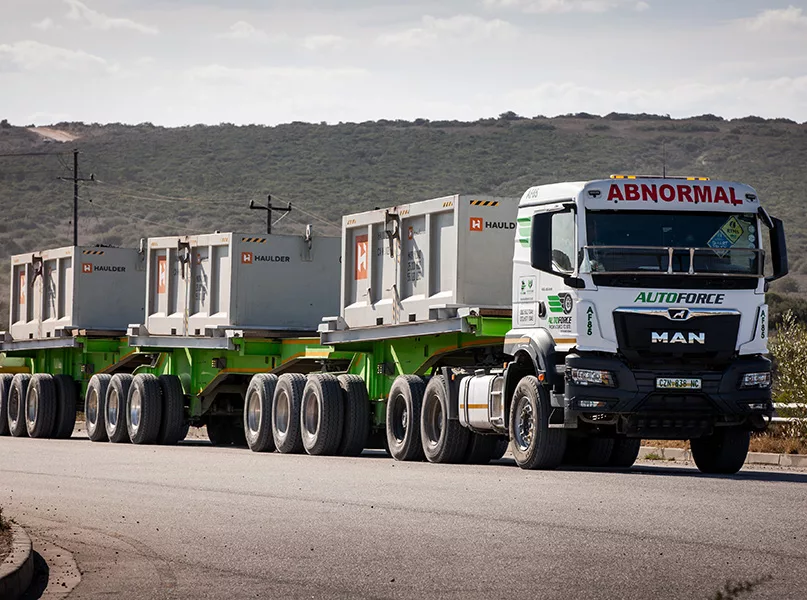
MOVING THE INDUSTRY FORWARD
MAN Automotive has been represented in SA since the 1960s, with the national headquarters located in the city of Modderfontein, an assembly plant in Pinetown, a bus and coach manufacturing facility in Olifantsfontein, a central parts depot in Isando, and a used commercial vehicle operation in Centurion, alongside a widespread national sales, service, and parts dealer network.
The company also has a network of 14 full dealerships and 15 service and parts dealerships strategically situated in order to provide complete support to its widespread customer base, in addition to the MAN Training Academy, which ensures it is always at the leading edge of technical know-how.
MAN Automotive in SA is derived from MAN Truck & Bus, one of Europe’s leading commercial vehicle manufacturers whose product portfolio includes vans, trucks, buses, diesel, and gas engines, as well as services related to passenger and freight transport.
With the decarbonisation of freight transport, digitalisation of logistics, and the worsening shortage of truck drivers all posing fundamental challenges for transport companies, MAN Truck & Bus is dedicated to shaping the change needed in the global industry.
The company is seeking to do so through the development of autonomous vehicles and EVs for a net zero future and intelligently connected transport, complemented by holistic advice on the switch to e-mobility and supported by a wide range of innovative digital services.
MAN Truck & Bus’ aim is that, by the end of the decade, it will have developed a fully autonomous, zero-emission truck.
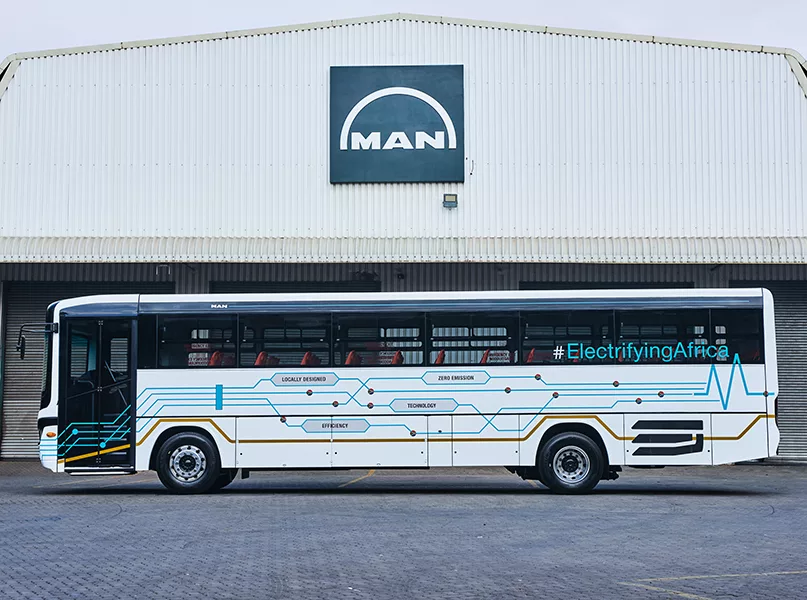
LEADING SA’S TRANSPORTATION MARKET
MAN Automotive has asserted itself over the past five decades as a transportation leader in the SA market, consistently bringing new technologies and innovations to the forefront of the national economy and paving the way for a better, more efficient transport future.
“SA is one of the most unique locations in the MAN Automotive world, as nowhere else have we embedded both production and wholesale aspects into a single country. This allows us to be both a wholesaler and a retailer,” asserts Aichinger.
The company prides itself on its strong and well-established network within the country, allowing it to tackle any issue from breakdown repairs to spare parts availability and much more.
Additionally, MAN Automotive is distinctive within the domestic market as it is the only original equipment manufacturer (OEM) that possesses its own bodybuilding plant located in the Johannesburg region.
At the facility, MAN Automotive produces its buses, a product where it has been a market leader since 2010, boasting a market share range between 40 and 50 percent.
“We are dominant in this market purely because we are the only company able to produce an entire product in one go and provide customers with a single point of contact for any further assistance, whereas others combine and sell chassis and bodybuilders from different manufacturers,” expands Aichinger.
The company is looking to continue to set itself apart by focusing its customers on more than just the price of a vehicle but the total cost of ownership (TCO).
One of the most important elements of TCO, which is often overlooked yet possesses the highest impact, is downtime.
“A truck or bus will only earn money if it is in operation, but if it stands still for too long, it can become very expensive and cost ample revenue. Therefore, it is a priority to keep vehicles functioning and on the road,” insights Aichinger.
With the vast importance of ensuring downtime can be minimised and handled as quickly and succinctly as possible, MAN Automotive provides immediate services to its customers and readies stock to be available at a moment’s notice in case of accidents or breakdowns.

“SA is one of the most unique locations in the MAN Automotive world, as nowhere else have we embedded both production and wholesale aspects into a single country. This allows us to be both a wholesaler and a retailer”
Jan Aichinger, Managing Director, MAN Automotive South Africa
GREAT PRODUCTS, EVEN BETTER SOLUTIONS
Today, to find long-lasting success, companies such as MAN Automotive need to sell not only a great product but an even better solution to its loyal customers.
“It’s not just a product at the end of the day; it must also be a solution. If you go back 30 years, just selling a truck was enough,” he explains.
MAN Automotive seeks to find each customer’s winning recipe through technology, data analysis, digitalisation, and more, allowing clients to shine with the right solution.
Through the company’s highly trained personnel, plethora of available spare parts, and ability to sort potential issues faster than others, it offers a more efficient model for its customers to rely on.
By steering the whole value chain, MAN Automotive is more flexible in terms of reacting to market trends and adapting to customer preferences.
“We know our clients very well, which allows us to speak to them directly and take their feedback onboard for future developments,” details Aichinger.
“We are constantly analysing how we can do things differently, and part of that is driven by external factors such as exchange rates.”
It is also of crucial importance to tailor MAN Automotive’s operations to the SA model as opposed to the European model from which the company stems.
For example, in Europe, there are legislated driving hours for those operating large vehicles, whereas in SA, those same rules don’t exist, thus changing the behaviour of the driver within the truck and the requirements.
“For me, that is one of the challenges yet one of the thrilling parts of the job – the diversity,” excites Aichinger.
MAN AUTOMOTIVE SOUTH AFRICA PARTNERS


